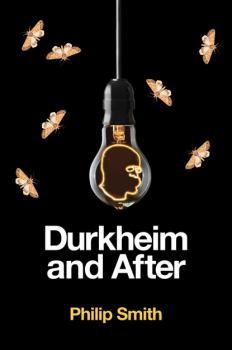ТОП просматриваемых книг сайта:
Philip Smith
Список книг автора Philip SmithАннотация
Émile Durkheim’s major works are among the founding texts of the discipline of sociology, but his importance lies also in his immense legacy and subsequent influence upon others. <br /><br />In this book, Philip Smith examines not only Durkheim’s original ideas, but also reveals how he inspired more than a century of theoretical innovations, identifying the key paths, bridges, and dead ends – as well as the tensions and resolutions – in what has been a remarkably complex intellectual history. Beginning with an overview of the key elements of Durkheim’s mature masterpieces, Smith also examines his lesser known essays, commentaries and lectures. He goes on to analyse his immediate influence on the <i>Année Sociologique</i> group, before tracing the international impact of Durkheim upon modern anthropology, sociology, and social and cultural theory. Smith shows that many leading social thinkers, from Marcel Mauss to Mary Douglas and Randall Collins, have been carriers for the multiple pathways mapped out in Durkheim’s original thought.<br /><br />This book will be essential reading for any student or scholar seeking to understand this fundamental impact on areas ranging from social theory and anthropology to religious studies and beyond.
Аннотация
Being at Home in the World is a book of Christian Apologetics. But Mark McLeod-Harrison and Phil Smith don't defend Christian faith; instead, they invite readers into faith. In the course of making this invitation, the authors raise suspicions against modern naturalism, offer respectful criticisms of major religions, and explain how Christian beliefs provide an organizing center of a flourishing human life. Their invitation to Christian faith is philosophically sophisticated, but it is also honest and personal; McLeod-Harrison and Smith tell their own stories of how they grew up as Christians and why they remain believers.
Аннотация
What is faith? In what ways might faith be a virtue, a component of a life well lived? How might faith be corrupted and become a vice?
In Why Faith Is a Virtue, Philip D. Smith builds on the work of Alasdair MacIntyre and Robert Adams to argue that faith contributes to human excellence. To make the argument, Smith sorts through conflicting possible «faiths» and shows how some of them are not virtues at all. Nevertheless, he argues that faith, properly understood, contributes to crucial human practices: scientific research, social reform, and parenting. He explains how and why faith is a virtue.
In Why Faith Is a Virtue, Philip D. Smith builds on the work of Alasdair MacIntyre and Robert Adams to argue that faith contributes to human excellence. To make the argument, Smith sorts through conflicting possible «faiths» and shows how some of them are not virtues at all. Nevertheless, he argues that faith, properly understood, contributes to crucial human practices: scientific research, social reform, and parenting. He explains how and why faith is a virtue.




